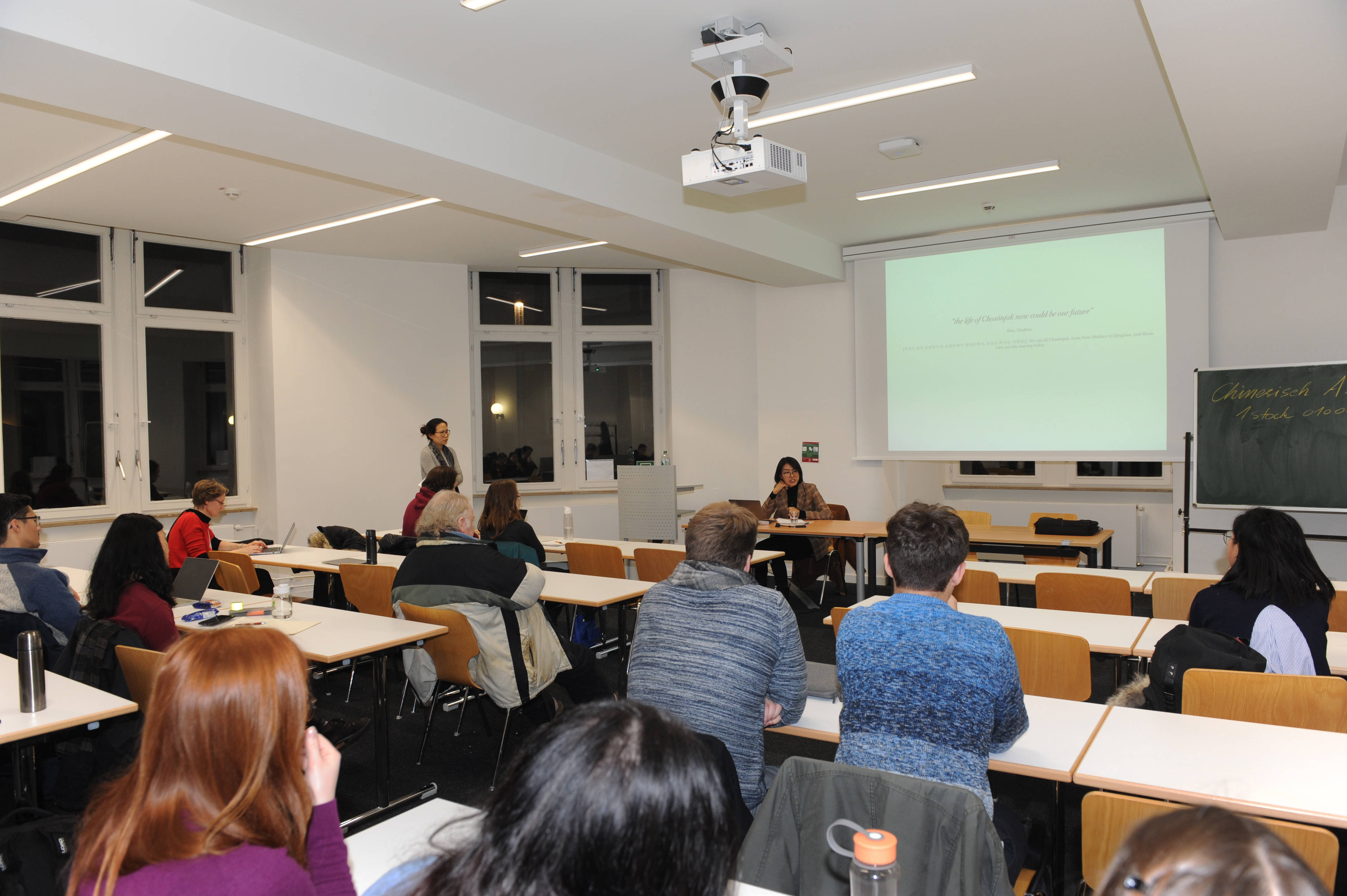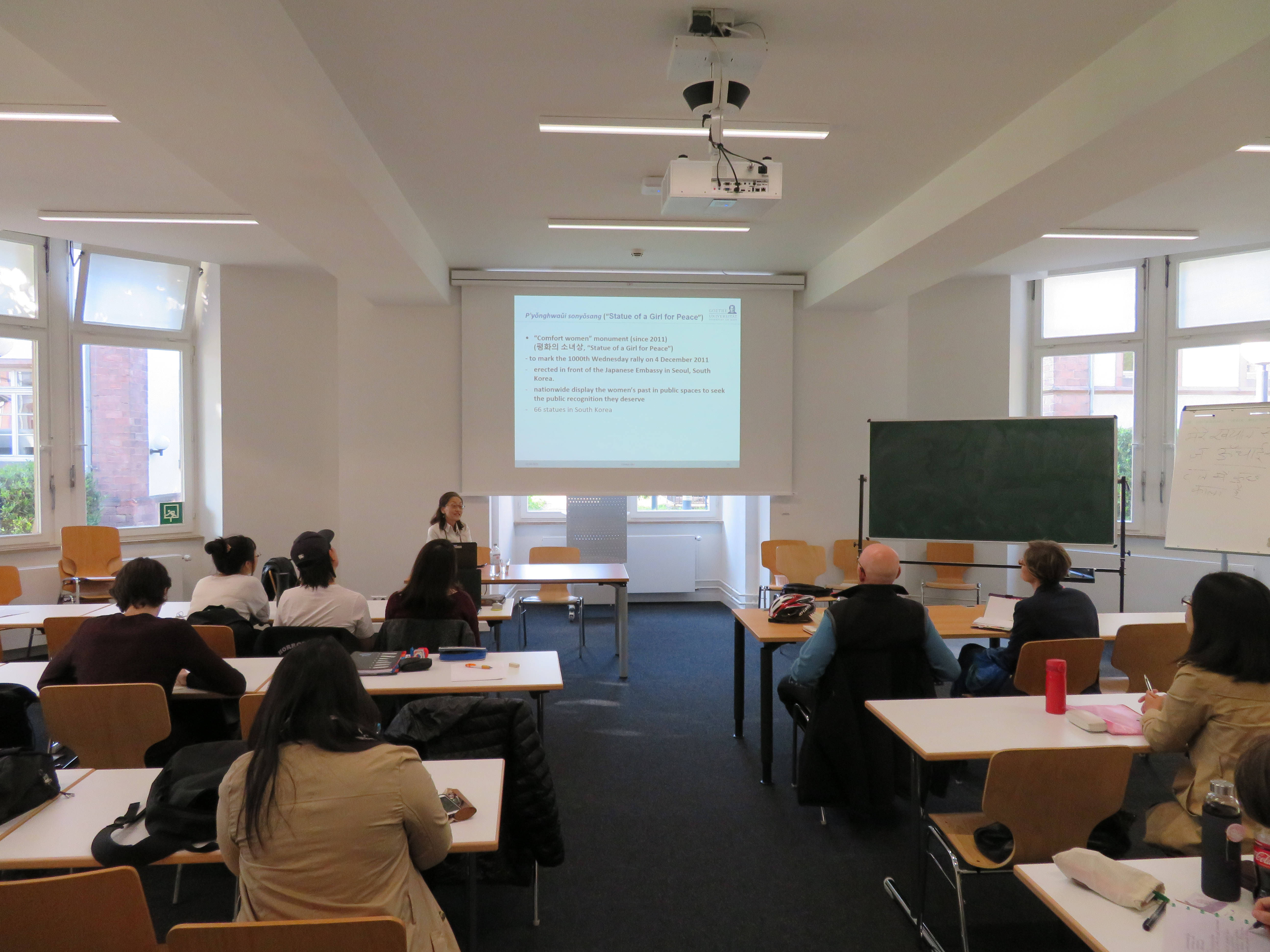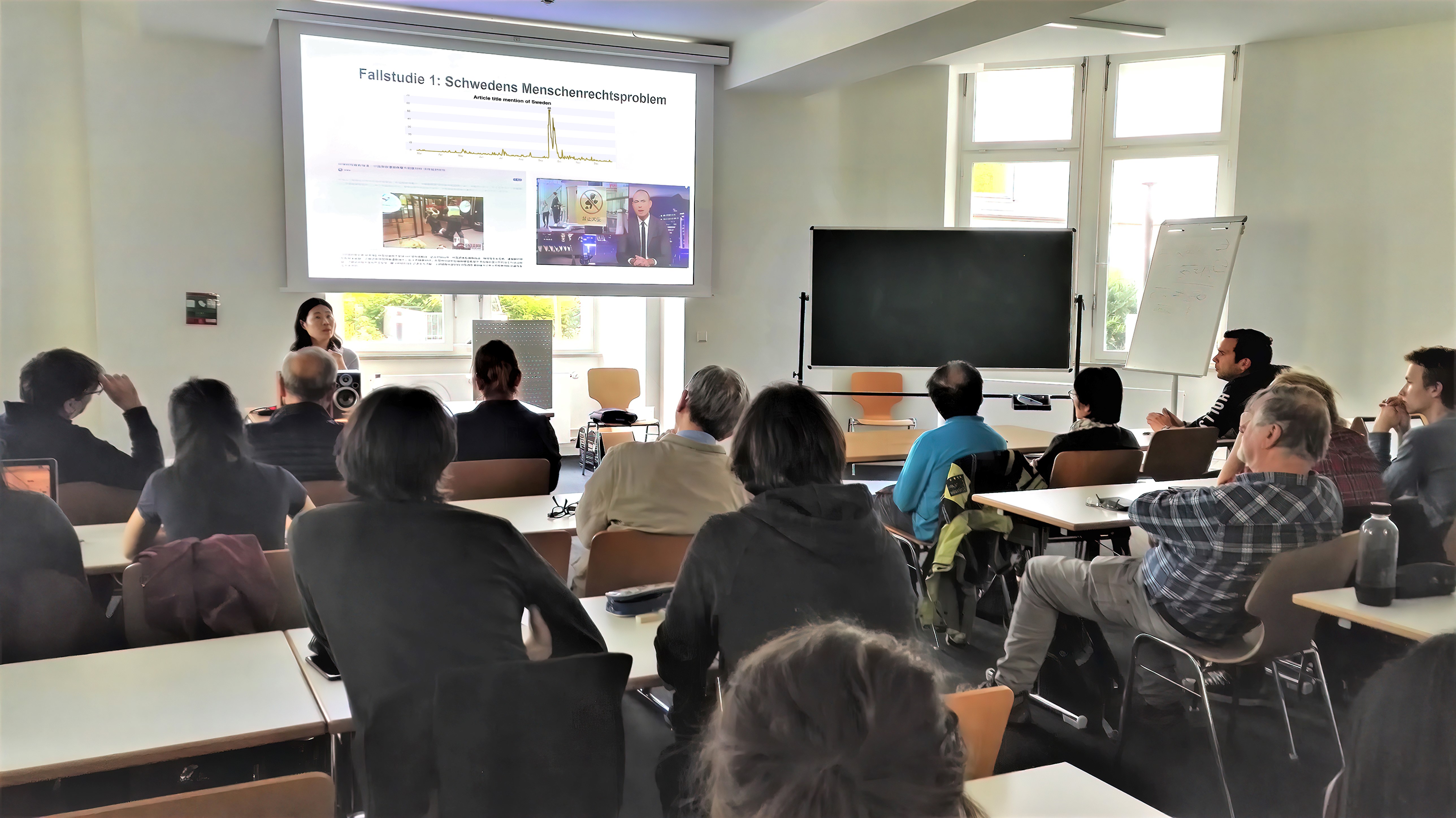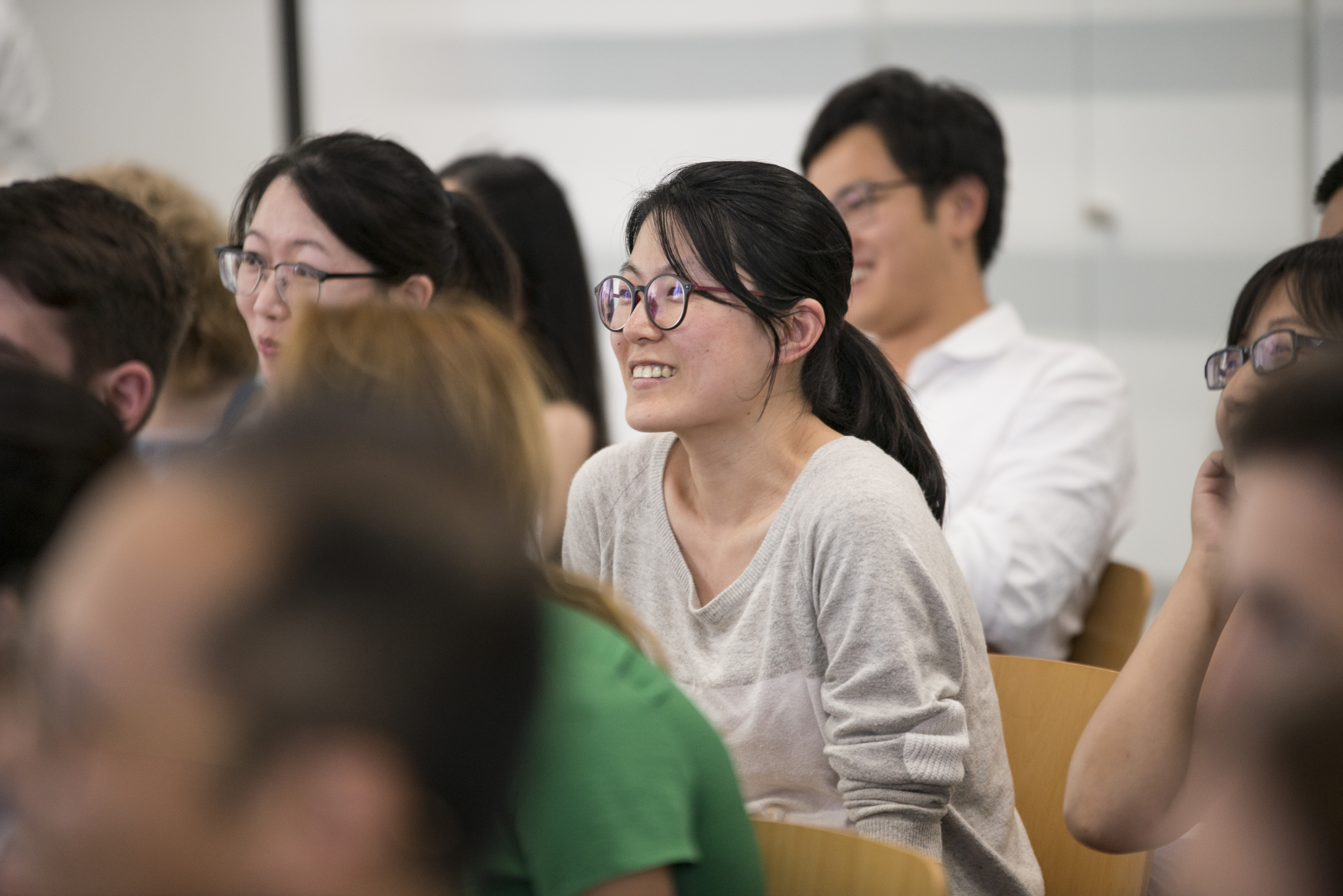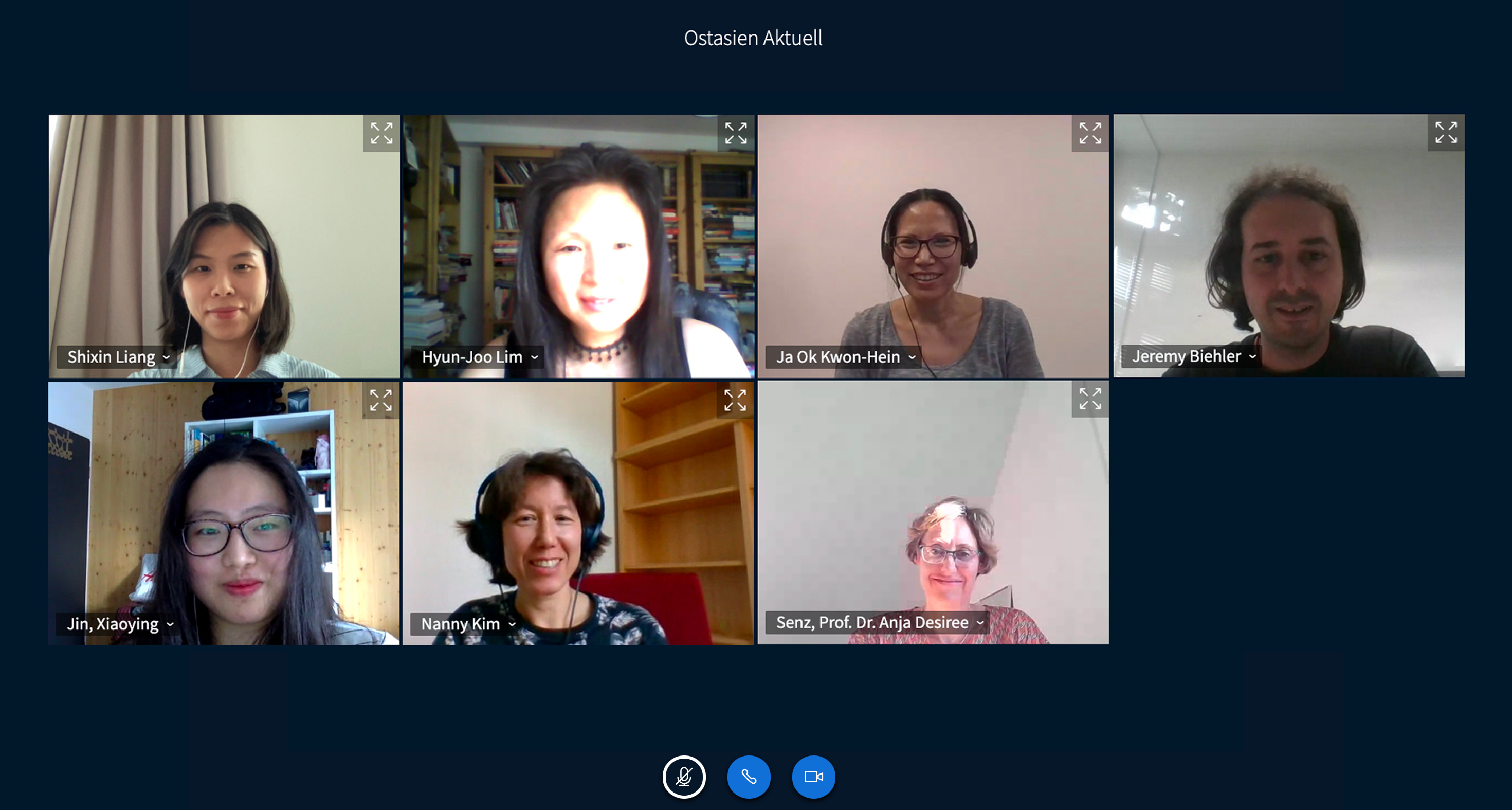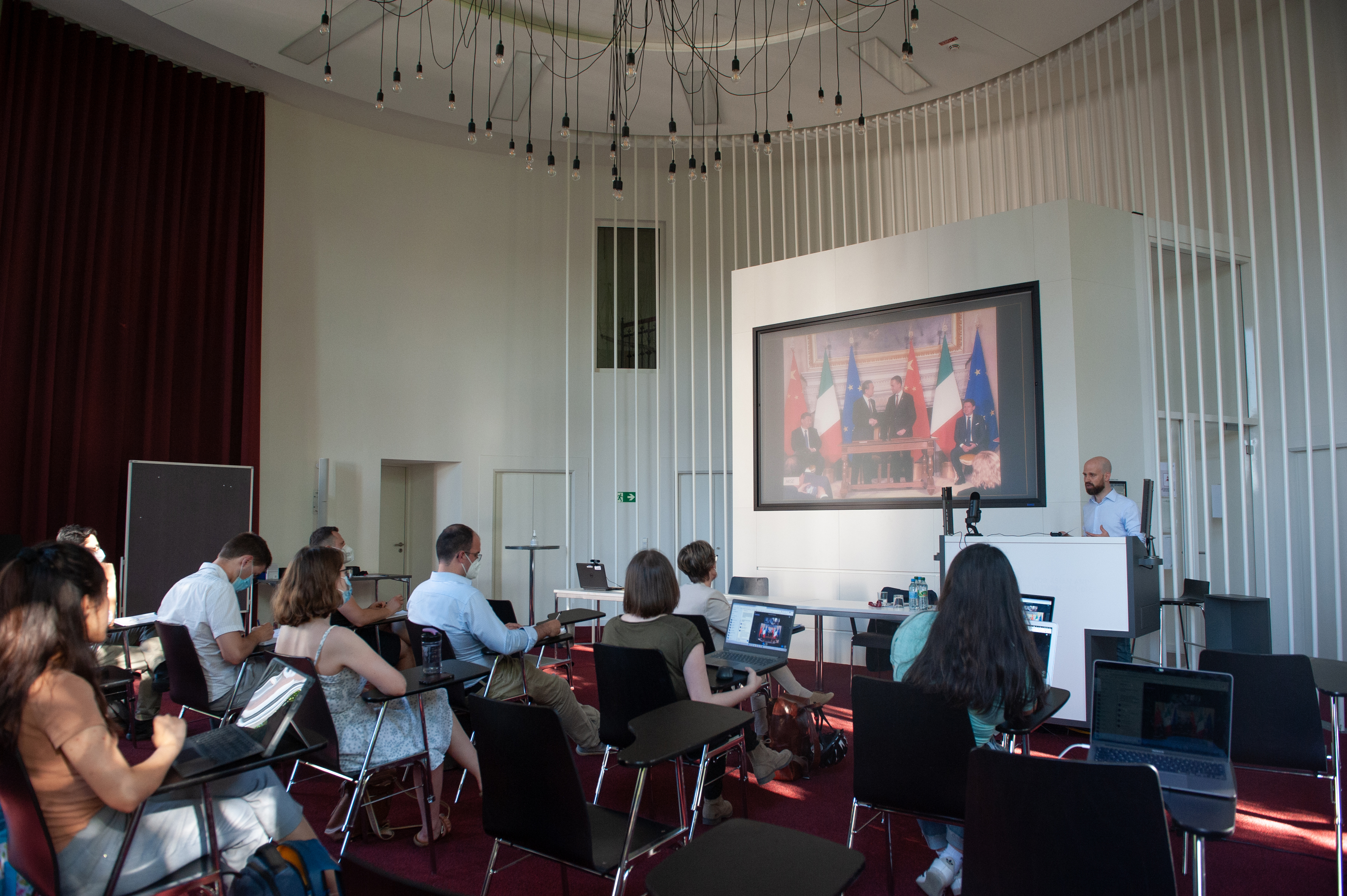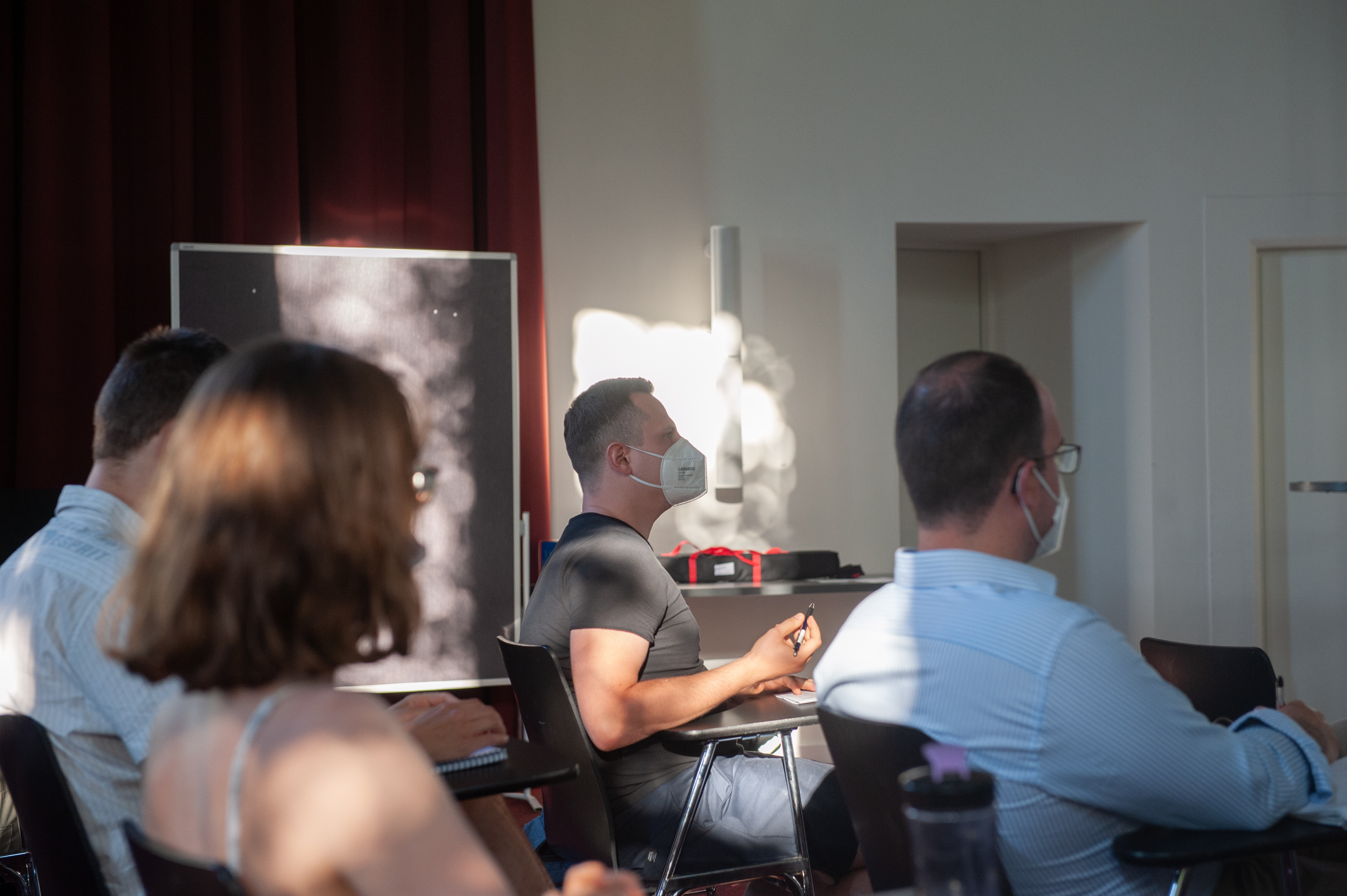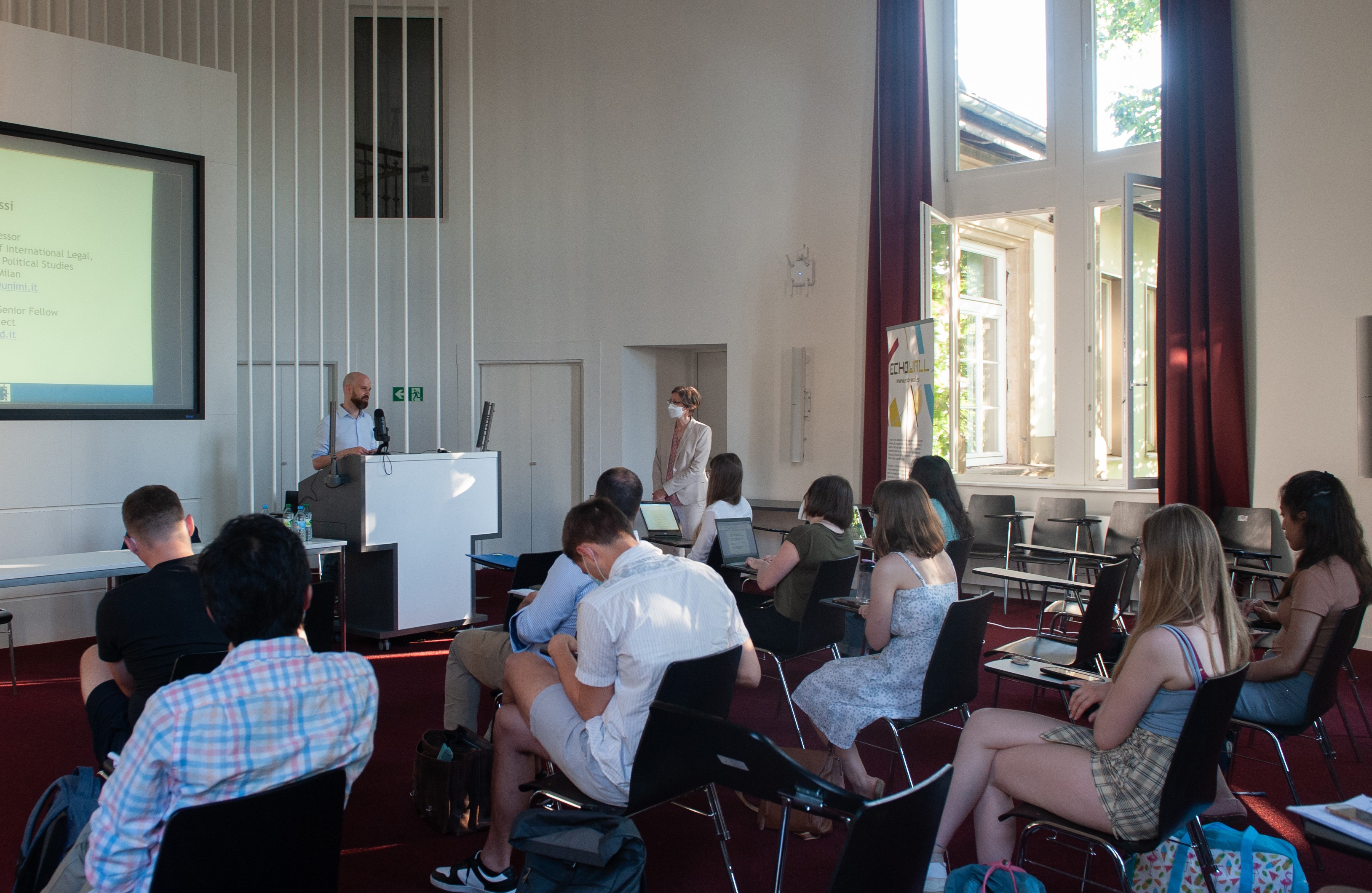Wintersemester 2025/26
Bitte beachten Sie die organisatorisch bedingt unterschiedlichen Anfangszeiten der verschiedenen Vorträge. Interessierte sind herzlich willkommen!
Mittwoch, 29.10.2025, 18.00 Uhr
Prof. Tao Ran (Chinese University of Hong Kong in Shenzhen): Rethinking the China Model: Land, Growth, and Pathway to Transformation
CATS Campus, 4010, 1. OG HS 05 (010.01.05)
Montag, 03.11.2025, 13.00 Uhr s.t.
Prof. Dr. Jiil Tark (Busan Presbyterian University):
Korean Cults in Germany
Online: https://heiconf.uni-heidelberg.de/upyt-pmtv-ujq4-zw79
Montag, 10.11.2025, 13.00 Uhr s.t.
Alicia García Herrero (Hong Kong University of Science and Technology): Words versus Deeds in China’s Industrial Policy
Online: https://heiconf.uni-heidelberg.de/upyt-pmtv-ujq4-zw79
Montag, 17.11.2025: 13.00 Uhr s.t.
Prof. Dr. Meehyun Chung (Yonsei University), Dr. Hyun Joo Choi (Sungkyunkwan University):
Faith in Motion: New Religious Movements between Korea and Germany
Online: https://heiconf.uni-heidelberg.de/upyt-pmtv-ujq4-zw79
Montag, 24.11.2025: 13.00 Uhr s.t.
Enrico Mariutti: Emission uncertainties in China’s solar industry
Online: https://heiconf.uni-heidelberg.de/upyt-pmtv-ujq4-zw79
Montag, 01.12.2025, 13.00 Uhr s.t.
Zhang Shuwei (Draworld Environment Research Centre):
Challenges in China’s energy system transition
Online: https://heiconf.uni-heidelberg.de/upyt-pmtv-ujq4-zw79
Mittwoch, 03.12.2025, 18.00 Uhr
Prof. Dr. Suzy Kim (Rutgers, The State University of New Jersey):
Among Women across Worlds: North Korea in the Global Cold War
CATS Campus, KJC 212
Mittwoch, 14.01.2026, 18.00 Uhr
Prof. Dr. Simone Dossi (Universität Mailand):
Between Brussels, Washington and Beijing: Italy’s China policy in a changing international landscape
CATS Campus, KJC, Raum 212
Mittwoch, 21.01.2026, 18.00 Uhr
Renée Rentke (Misereor): Bridging Worlds: How Civil Society Moves India & China Forward
CATS Campus, 4010, 1. OG HS 05 (010.01.05)
Veranstaltungsort
(Präsenz bzw. Hybrid-Veranstaltungen)
sofern nicht anders angegeben:
CATS-Seminargebäude, Voßstr. 2, Gebäude 4010
1. OG, Raum 010.01.05
Einwahllink für Online-und Hybrid-Vorträge:
https://heiconf.uni-heidelberg.de/upyt-pmtv-ujq4-zw79
Kontakt/Anmeldung
ostasien-aktuell[at]zo.uni-heidelberg.de
Rückblick
Dr. Jin Suk Bae (Soongsil University, South Korea), 07 Juli 2025, Gender, Mobility, and the Archipelago: A Korean Picture Bride’s Involvement in Hawaii’s Lodging Businesses
Dr. Ming Ma (Freie Universität Berlin), 25 Juni 2025, Credible Information, Strategic Signal, or Both? Authoritarian-Aligned Narratives and Public Opinion
Prof. Dr. Min Zhou (Univ. of California, USA), 25 Juni 2025, Entrepreneurship as a Means of Individual Social Mobility and Community Building: A Comparative Analysis of Immigrant Chinese and Korean Communities in Los Angeles
Dr. Shirley Yang (Hong Kong Polytechnic University), 24 Juni 2025, Migrant Lives, Divided Rights: Migration and Citizenship in China, Taiwan, and Hong Kong
Dr. Hyeonjun Kim (Kangwon National University, South Korea), 16 Juni 2025, Populism in South Korea?: Before and After the 12.3 Martial Law Crisis Hu Jie (Nanjing, China), 11 June 2025, Songs from Maidichong (film screening and discussion)
Dr. Marianne Jung (Comenius University, Slowakia), 07. Mai 2025, North Korean Defectors: Challenges and Perspectives
Dr. Jihey Bae (Chungang University, South Korea), 05. Mai 2025,University Ranking System and Hakbul Ideology in South Korea
Dr. Svetlana Russkihi (University Paris Cité, France), 27. Jan. 2025, Migration Trajectories of Koryŏ-saram from Central Asia to South Korea
Dr. Mihye Cho (Waseda University, Japan), 20. Jan. 2025, Between Being Work Refugees and Special Contributors: The Experience of Afghan Refugees in South Korea
Dr. Xiao Ma (East China University of Science and Technology in Shanghai, China), 13. Jan. 2025, South Korean Migrants in between Two States: Educational Desire, Migration Regimes and Temporality
Yongbeom Choi (Constitutional Court of South Korea), 04. Dez. 2024, Animal Law in Korea: A Case Study on the Dog Meat Practices
Jiang Nengjie (Regisseur), 13. Nov. 2024, Miners, the Horsekeeper and Pneumoconiosis, (die Bergleute, der Maultiertreiber und die Silikose), Filmvorführung mit Diskussion
Prof. Fu King-wa (University of Hong Kong), 22. Okt. 2024, State-enacted censorship, digital infrastructure and new research methods
Dr. Wei Lit (Hong Kong Baptist University), 26. Juni 2024, Waste colonialism? Plastic Waste from Europe to China and beyond?
Prof. Kang Yi (Hong Kong Baptist University), 25. Juni 2024, Digital Disengagement under Drastic Political Change in Hong Kong
Prof. Kai He (Griffith University Australia), 06. Feb. 2024, The Upside of US-Chinese Strategic Competition: Institutional Balancing and Order Transition in the Asia Pacific
Prof. Dr. Nathan F. Batto (Academia Sinica & National Chengchi University, Taiwan), 22. Jan. 2024, Reflections on Taiwan’s Elections and their Implications for the near Future
Prof. Dr. Simone Dossi (University of Milan, Italy), 06. Dez. 2023, Securitization of Everything? China’s expanding Sphere of National Security and the Cyber Domain
Wu Si (Beijing), 28. Nov. 2023, Weder Sozialismus noch Kapitalismus? Mit dem Begriff „Guanjia zhuyi“ (官家主义) den Charakter chinesischer Politik neu analysieren.
Prof. Dr. Md Safiqul Islam (University of Chittagong), 27. Nov. 2023, Strategies of China and India in the Bay of Bengal Region: Revisiting Strategic Competition,
Dr. Fabienne Wallenwein (Universität Heidelberg), 19. Juli 2023, Rice terrace landscapes and their traditional cultivation as resources for regional and local development? Insights into socio-cultural and economic transformations of the Hani Rice Terraces in Yunnan Province
Prof. Dr. Mary Alice Haddad (Wesleyan University), 26. Juni 2023, Environmental Politics in East Asia
Prof. Wonsub Kim (Korea University), 19. Juni 2023, Building a Welfare System through Bounded Learning: A Case Study of Korean Long-Term Care Insurance
Dr. Amrita Saikia (University of Science and Technology Meghalaya), 12. Juni 2023, Tibetan Women-in-Exile in India: Construction of the Idea of the Tibetan Nation and Contributions to Tibetan Nationalism
Dr. Mike Prentice (University of Sheffield), 05. Juni 2023, Infrastructures of Distinction in Corporate South Korea
Prof. Dr. Axel Klein (Universität Duisburg-Essen), 10. Mai 2023, Zur Rolle organisierter Religion im politischen System Japans
Prof. Youngmi Kim (University of Edinburgh), 06. Feb. 2022, The 2022 Presidential Election in South Korea: The Politics of Resentment and Revenge Confirms Older Trends and Cleavages and Reveals New Ones
Dr. Konstantinas Andrijauskas (Vilnius University), 01. Feb. 2022, The Restraining Belt: Physical Infrastructure as China’s Means of Territorial Control
Dr. Thomas Arnold und Prof. Dr. Anja Senz (Universität Heidelberg), 25. Jan. 2022, Zur (Un)Sachlichkeit in politischen Debatten über China
Prof. June Hee Kwon (California State University, Sacramento), 18. Jan. 2022, Ethnic Borderland: The Un/Homeliness of Korean Chinese in Yanbian China
Prof. Dr. Markus Taube (Universität Duisburg-Essen), 14. Dez. 2022, Chinas Volkswirtschaft im Krisenmodus: Neuorientierung in turbulenten Zeiten
Prof. Yewon Lee (Universität Tübingen), 12. Dez. 2022, Occupying Shops to Defend Rights to Spaces of Livelihood: From Tenant Shopkeepers’ Fragmentation to Collective Consciousness in Seoul
Dr. Jaok Kwon (Universität Heidelberg), 28. Nov. 2022, Creating Aspiration of Youth for Transnational Mobility: Youth Overseas Employment Programme in South Korea
Dr. Anna Growe and Simin Yan (Universität Heidelberg), 23. Nov. 2022, Governing Chinese Mega-city Regions – Organizing Spatial Development or Resigning in the Face of Size?,
Prof. Shapan Adnan (SOAS, University of London), 16. Nov. 2022, Rural Development, Agricultural Modernization, and Social Change in China: Comparative Perspectives in Relation to South Asia
Prof. Pablo Pareja Alcaraz (Universität Barcelona), 20. Juli 2022, EU-China Relations in the Aftermath of Brexit and Covid-19
Dr. Helen Kim (Universität Leeds), 11. Juli 2022, Journeying towards Independence? Korean Nurses, Gender, and their ‘Twice Migration’ to the US in the 1970s
Prof. Dr. Anja Senz (Universität Heidelberg), 04. Juli 2022, Meet & Discuss: Sinologie im Kreuzfeuer kontroverser Chinathemen
Prof. Dr. Chunshik Kim (Dongshin University, Südkorea), 27. Juni 2022, Duale Ausbildung und duales Studium in Deutschland und Übertragbarkeit der Bildungssysteme auf Korea
Prof. Dr. Jeanne Huang (Universität Sydney), 8. Juni 2022, Applicable Law to Transnational Personal Data: Trends and Dynamics between China, the EU and the US
Prof. Dr. Giuseppe Gabusi (Universität Turin), 8. Juni 2022, Whatever It Takes”: The Political Economy of the Chinese Communist Party,
Dr. Kumiko Kawashima (Rikkyo Universität, Tokyo), 30. Mai 2022, Labour Migration under Recession: A Comparative Study of Younger and Older Japanese Skilled Workers in China
Prof. Dr. Simone Dossi (Universität Mailand), 18. Mai 2022, China’s Growing Role in the Mediterranean Region and the Implications for Europe
Prof. Dr. Gracia Liu-Farrer (Waseda Universität, Tokyo), 2. Mai 2022, The Mobility of People between Japan and China in the 21st Century
Youngeun Koo (Universität Tübingen), 31. Jan. 2022, Transnational Biopolitics and Cold War Geopolitics: Intercountry Adoption between “Divided” Korea and “Neutral” Sweden
Prof. Dr. Hyun Mee Kim (Yonsei University, Südkorea), 17. Jan. 2022, Developmentalism-based solutions or existential voices? Divergent discourses facing climate crisis in South Korea
Dr. Ji-yoon An (Nanyang Technological University, Singapore), 06. Dez. 2021, The Family in (New) Korean Cinema
Dr. In Young Min (Universität Heidelberg), 22. Nov. 2021, An Impossible Choice?: Past, Present, and Future of South Korea’s Independent Nuclear Arms
Dr. Hyojin Lee (Ca’ Foscari Universität, Venedig), 8. Nov. 2021, The Vulnerability of the Historical Memory on Women in Modern Korea: The Changing Narratives on Ch’oe Yŏngsuk
Dr. Hyun-Joo Lim (Bournemouth University, UK), 7. Juli 2021, North Korean Female Human Rights Abuse and Women’s Resistance
Prof. Dr. Gabriele Vogt und Anne-Sophie L. König (Ludwig-Maximilians Universität, München), 30. Juni 2021, Robotik und Technologie in Japans Altenpflege
Dr. Mee-Kyung Jung (Dankook Universität, Südkorea), 22. Feb. 2021, Two Keys to Pyongyang’s Past and Future – Moral Center and Korean War
Dr. Jaemin Shim (Hong Kong Baptist Universität), 09. Feb. 2021, Mass-Elite Representation Gap in Old and New Democracies
Dr. Sang-hui Nam (Universität Bamberg), 20. Jan. 2021, Intermediäre Akteure hinter den Kulissen demokratischer Wahlen in Südkorea
Unnur Bjarnadottir (Universität Heidelberg), 15. Jan. 2021, Korean Cosmetics in Europe: Their Perception and Connection to Pop Culture from a Transnational Perspective
Xiaoying Jin, M.A. (Universität Heidelberg), 11. Dez. 2020, A Review on Second-Generation Immigrants‘ Research and theoretical rationale for East Asian Second-Generation Immigrants in Germany
Dr. Hyun Gyung Kim (Freie Universität Berlin), 21. Jan. 2020, The Flexibilization of the Korean TV Industry and the Birth of trans/national Stars in East Asia
Dr. Hojye Kang (Universität Tübingen), 15. Jan. 2020, Spin-off from military to civil: Alternative way for the Denuclearization of Korea Peninsula
Ruixin Wei (Goethe-Universität Frankfurt am Main), 11. Dez. 2019, (Trans-)national Identity and lived Experiences of Korean Chinese in China
Prof. Dr. Takashi Machimura (Hitotsubashi University, Japan), 06. Nov. 2019, Hidden Dimensions of Olympic Games: Tokyo, from 1964 to 2020
Prof. Dr. Myungkoo Kang (Seoul National University), 11. Juli 2019, A Cultural Critique of Hate Gazes on North Korea – An Interpretive Analysis of Pyeongchang Winter Olympic News
Yuanyuan Liu, Dipl.Soz. (Universität Heidelberg), 10. Juli 2019, Chinesische Top-Manager: Karrierewege, Einstellungen, Führungsstil
Prof. Dr. Hannes Mosler (Freie Universität Berlin), 27. Juni 2019, Reformbedarf! Warum liegt Südkoreas Verfassung im Dornröschenschlaf?
Dr. Momoyo Hüstebeck (Universität Duisburg-Essen), 19. Juni 2019, Deliberation in Japan angesichts der Herausforderung der repäsentativen Demokratie
Zhu Yi, M.A. (Universität Heidelberg), 29. Mai 2019, Framing Europe – eine Analyse von Europa-Beiträgen in den offiziellen und den sozialen Medien in China
Prof. Dr. Yonson Ahn (Goethe-Universität Frankfurt am Main), 22. Mai 2019, Memory and Commemoration of ‘Comfort Women’ in Post-War South Korea
Dr. Jin-Heon Jung (Freie Universität Berlin), 08. Mai 2019, Transnational Migration and religious Conversion among North Korean Refugee-Migrants across Continents in comparative Perspectives
Prof. Dr. Unsuk Han (Universität Tübingen), 30. Jan. 2019, Rezeption der deutschen Einheit in Korea
Prof. em. Wolfgang Seifert (Universität Heidelberg), 22. Jan. 2019, Der Beitrag des Völkerrechts zur japanischen Kolonialherrschaft in Korea von 1910-1945
Dr. Oliver Corff (Berlin), 16. Jan. 2019, China: eine Wirtschaftsmacht transformiert ihr Militär
Dr. Susanne Fehlings (Goethe-Universität Frankfurt am Main), 12. Dez. 2018, Kaukasischer ‚Biznes‘ zwischen Tbilisi und Beijing: „Ethnic Entrepreneurship“ und die liberale Marktwirtschaft
Prof. Taeyoung Yoo (Korean University of Foreign Studies), 04. Dez. 2018, Varieties of Capitalism and Practice of Ideas
Prof. Dr. Anja Senz (Universität Heidelberg), 26. Oktober 2018, Yidai yilu – Ein Band, eine Straße? Warum China auf Innovation und Kooperation angewiesen ist
Nikolai Putscher (Board of Directors, Asian Infrastructure Investment Bank, AIIB), 23. Juli 2018, Die Rolle der Asian Infrastructure Investment Bank (AIIB) im Kontext der chinesischen Belt and Road-Initiative
Prof. Dr. Barbara Mittler (Universität Heidelberg), 18. Juli 2018, Mao und das Wasser: Metaphern von Souveränität und Macht,
Kai von Carnap (Chinese European Economics and Business Studies Berlin), 28. Juni 2018, Bitcoin, Kryptowährungen, Blockchain in China: Wird das Reich der Mitte zum neuen Entwicklungszentrum?
Jeanette Werning, M.A. (Universität Heidelberg), 20. Juni 2018, Archäologie und Umwelt in Xinjiang,
Prof. Fu King-wa (University of Hong Kong), 28. Mai 2018, China’s 360-degree Information Control: An update
Dr. Oliver Corff (Berlin), 15. November 2017, Deutsch-chinesische Wirtschaftsinteressen im Spannungsfeld von Markt und Politik
Prof. em. Edward Friedman (University of Wisconsin), 14. Juni 2017, Forecasting China’s Future
Prof. Dr. Anja Senz (Universität Heidelberg), 03. Mai 2017, Korruption und die Möglichkeiten ihrer Bekämpfung in China,
Zhu Yi, M.A. (Freie Universität Berlin), 20. Juli 2016, Das Internet als Kampfplatz – Chinas virtuelle Arena im Zentrum politischer Kontroversen
Prof. Dr. Anja Senz (Universität Heidelberg), 27. Januar 2016, Chinas innere Dynamik und die außenpolitischen Folgen

